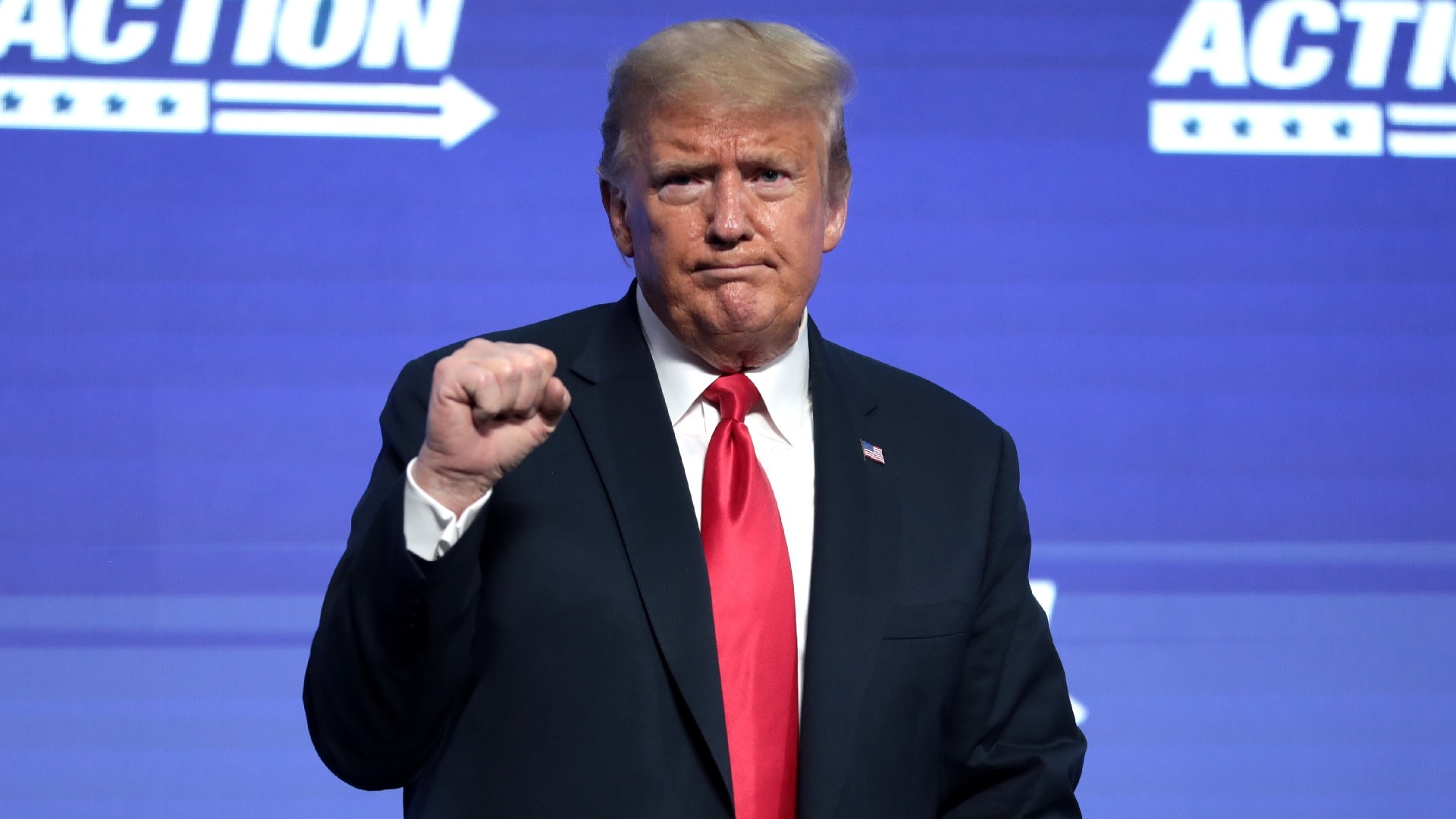Donald Trump has been compared to Teddy Roosevelt before.
Both are chest-thumping, fire-breathing New Yorkers, and both managed to give the old guard of the Republican Party heartburn.
Both were routinely called bullies and were sort of proud of the label.
Each had extraordinarily loyal constituencies.
One obvious difference is that Roosevelt is one of the nation’s youngest presidents, and Trump is one of the nation’s oldest presidents.
But age isn’t preventing Trump from–like TR–seeking a non-consecutive term.
Another area they could conceivably be similar is becoming a spoiler.
Donald Trump: Could He Form a Third-Party?
A Monmouth University poll finds that 26 percent of Republican voters believe that Donald Trump should run as a third-party candidate if he doesn’t win his party’s nomination in 2024.
More polls are showing him trailing Florida Gov. Ron DeSantis, which makes it at least possible Donald Trump won’t be the nominee.
That could mean 112 years after TR took his delegates and bolted the Republican National Convention to hold a separate Bull Moose Party convention, Trump could do something similar.
Roosevelt went on to beat his handpicked successor–President William Howard Taft–but handed the presidency to Democrat Woodrow Wilson, one of America’s worst chief executives, in the 1912 election.
Supposedly, President Joe Biden strongly prefers having Trump as his opponent in 2024 to other potential GOP candidates.
The left certainly has antipathy for DeSantis, and maybe other potential GOP contenders.
But no one would drive the Democratic turnout like voting against Trump.
An even bigger dream for Democrats would be a GOP nominee vs. a third-party Trump vs. either Biden or Vice President Kamala Harris, whoever the Democrat standard bearer is next year.
The Motivation
Trump’s supporters might not care that much if loses, if they think Trump would stick it to the establishment.
The pro-Trump publication American Greatness ran a piece encouraging Trump to emulate TR.
“Do I think Trump can win as a third-party candidate? No. Would I vote for him as a third-party candidate? Yes,” Dan Gelernter writes. “Because I’m not interested in propping up this corrupt gravy-train any longer. Mitch McConnell says that ‘providing assistance for Ukrainians to defeat the Russians is the number one priority for the United States right now, according to most Republicans.’ Most Republicans where? Inside his bank account?”
Similar to the 2016 election cycle, Trump isn’t committing to support the GOP nominee if it isn’t him.
“It would depend,” Mr. Trump said on the Hugh Hewitt show. “It would have to depend on who the nominee was.”
Ballot access could be an issue. More than 40 states have what are generically called, “sore loser laws” that to varying degrees require an independent candidate collect enough signatures to be on the ballot before the primary. So, Trump could drop out before certain primary contests occur.
It doesn’t seem likely that Donald Trump could come in second place as Roosevelt did in 1912. Though keep in mind, Roosevelt–like Trump–was only elected once to the White House.
The 26 percent of Republican voters who would back Trump in a general election is enough to hand the victory to Democrats.
But perhaps 2016 should teach everyone never to underestimate Donald Trump. He could perform significantly higher than less than one-third of GOP voters.
It can’t be overstated that so much of Trump’s surprising support in 2016 emerged from the old voting bloc that backed Ross Perot in 1992.
Perot outperformed expectations, winning almost 20 percent of the vote in the general election.
Donald Trump–who considered running for president in Perot’s Reform Party in 2000–was essentially a third-party independent running in the parameters of a major party in 2016.
But ultimately, Perot didn’t win. Even the extraordinarily popular Teddy Roosevelt couldn’t win running outside the two-party system.
Trump would have to know he couldn’t win as a third-party candidate as well. The question is, would he be content to burn down a Republican Party if it rejects him.
BONUS: Kamala Harris Should Quit
BONUS: A Nuclear War over Ukraine?
BONUS: Donald Trump Looks Desperate
Barbara Joanna Lucas is a writer and researcher in Northern Virginia. She has been a healthcare professional, political blogger, is a proud dog mom, and news junkie. Follow her on Twitter @BasiaJL.

